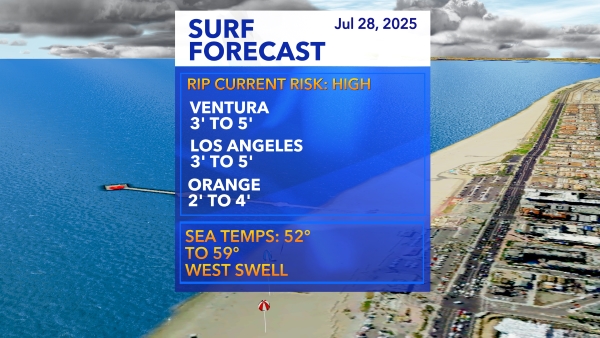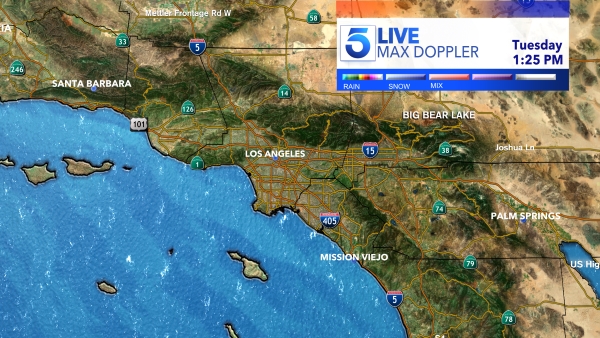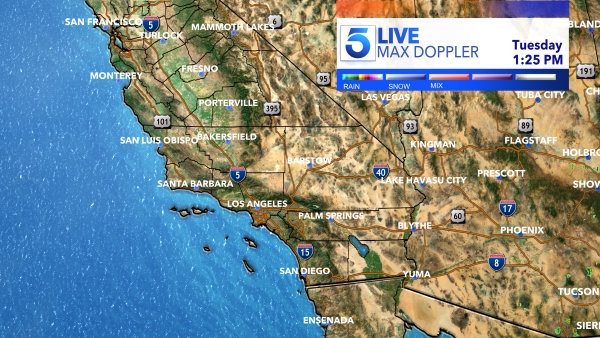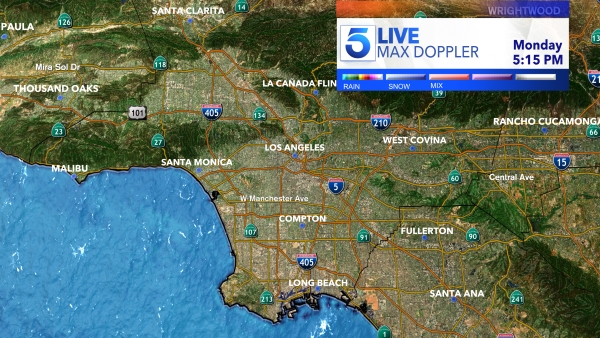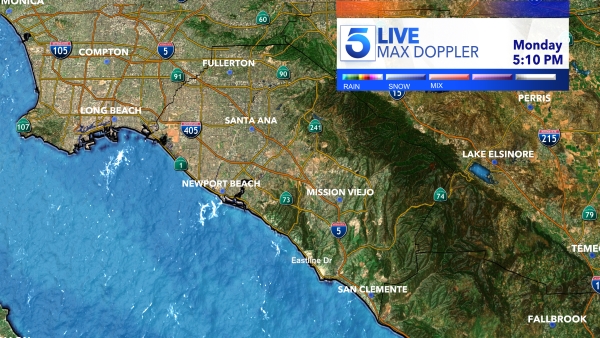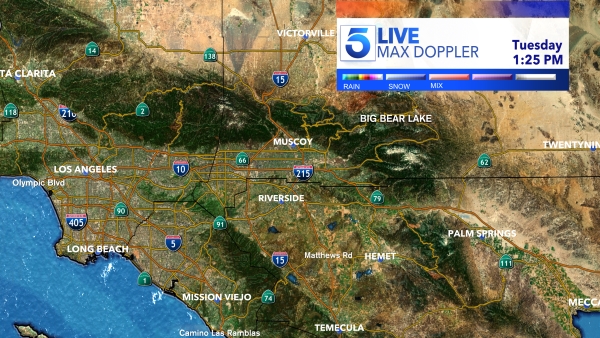Brace yourself: It’s going to be a hot weekend heading into the July 4 holiday.
Hot and dry conditions, along with elevated fire weather, are expected across the desert, lower mountains and interior valleys of Southern California Friday through Monday, according to the National Weather Service.
Temperatures are expected to peak in the 90s and up to 109 in some areas, with the hottest temps expected Saturday and/or Sunday.
An excessive heat warning will likely be in place in the Antelope and Santa Clarita valleys, while a heat advisory is possible in San Luis Obispo County, Ventura County and Los Angeles County mountains, according to the weather service.
The agency recommends that residents hydrate and reduce exposure to heat.
“Take care with possible fire ignition sources such as fireworks and lawn care equipment,” the weather service added.
Los Angeles County Public Health officials also warned about substantial health risks associated with extreme heat, especially for young children, the elderly, people with chronic diseases, those who are pregnant, people with disabilities and people who are socially isolated.
Never leave children of any age, pets or people with impairments alone in a parked car for any period of time, officials remind residents.
“Cars get very hot inside, even if the windows are ‘cracked’ or open – it can take only a few minutes for the temperatures inside a car to rise to levels that can kill. Call 911 if you see a child or pet in a car alone,” health officials said.
The department advises those who have substantial health risks to have a friend or relative call to check on them twice a day during a heatwave.
Health officials are offering these additional tips on how to stay cool and safe ahead of the scorcher:
Stay cool
- Those who do not have air conditioning should go to a cooling center, library or public place, like a mall or a movie theater, to cool off for a few hours a day. To find your nearest cooling center, click here or call 211.
- While electric fans may provide comfort, they will not prevent heat-related illnesses when temperatures soar to the high 90s.
- Take a cool shower or bath, or move to an air-conditioned area to cool off. Use a cold compress to provide relief.
- Use your stove and oven less to maintain a cooler environment in your home.
- If you plan on spending time outdoors, officials recommended that you avoid physical exertion or exercising outside during the hottest parts of the day. Get medical attention if you experience rapid, strong pulse, feel delirious or have a body temperature above 102 degrees.
- Reduce sun exposure from 10 a.m. to 4 p.m., when UV rays are strongest, and keep physical activities to a minimum during that time.
- Wear light, loose-fitting, light-colored clothes to reflect heat and sunlight.
- Wear a wide-brimmed hat to cover the face and neck, sunglasses, plenty of sunscreen and anything to protect your skin from the sun and mosquitoes.
Stay hydrated
- If you have to work outside, drink plenty of fluids, even if you’re not thirsty, and take rest breaks in the shade.
- Stay away from overly sweet, caffeinated or alcoholic drinks.
- Replace salt and minerals. Heavy sweating removes salt and minerals from the body that need to be replaced, and a sports drink can replace them.
- Keep your pets hydrated, too. Provide plenty of fresh water for your pets and leave water in a shady area.
Know the signs of heat-related illnesses and how to respond
Heat-related illnesses can bring on heat rash, heat cramps, fainting, exhaustion, heat stroke and can even lead to death. Warning signs include heavy sweating, muscle cramps, weakness, headache, nausea or vomiting, paleness, tiredness, dizziness or disorientation or confusion.
Signs of heat cramps include muscle pains and spasms triggered by heavy activity, and usually involve the stomach muscles or legs.
If a person has heat cramps:
- Stop physical activity and move to a cool place.
- Drink water or a sports drink.
- Do not resume physical activity for several hours after the cramps go away.
- Get medical help right away if the cramps last longer than an hour, if someone is on a low-sodium diet or if someone has heart problems.
Signs of heat exhaustion include heavy sweating, cramps, headache, nausea or vomiting, tiredness, weakness, dizziness and fainting.
If a person has heat exhaustion:
- Move to a cool place.
- Rest, lie down.
- Loosen clothes.
- Put cool, wet cloths on the body (including head, neck, armpits and groin) or take a cool shower or bath.
- Sip cool, non-alcoholic beverages including water.
- Get medical help right away if someone is throwing up, the symptoms get worse or if the symptoms last more than an hour.
Heat stroke is a medical emergency. Warning signs include red, hot, dry skin, very high body temperature, dizziness, nausea, confusion, strange behavior or unconsciousness, rapid pulse or a throbbing headache.
If a person has heat stroke:
- Call 9-1-1 right away.
- Move the person to a cooler or shady place.
- Help lower the person’s temperature with cool wet cloths on the head, neck, armpits and groin, or take a cool bath.
- Do not give the person anything to drink.
Public health officials recommend that residents check weather forecasts and watch out for extreme heat alerts and safety tips.

